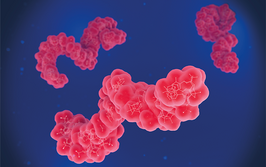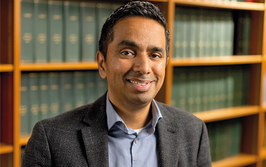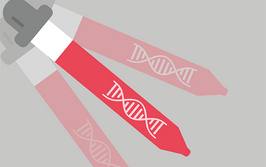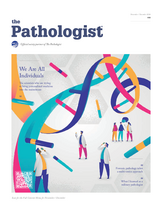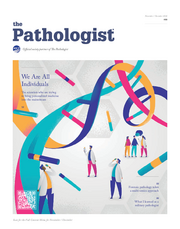Pathologists are at the forefront of diagnostic developments, helping clinicians and surgeons make the best out of the cornucopia of laboratory information. Pathologists are to clinicians and surgeons what diagnoses are to healing.
Clinical pathology consultations have happened informally for as long as laboratorians and anatomic pathologists have been in the business of diagnosing disease. However, Michael Laposata of the University of Texas Medical Branch has shone a different light on these consultations – and on pathology as a whole. He coined the term “diagnostic management team” (DMT) and, with it, sparked conversations across the nation about the clinical consultations we provide. DMTs consist of multidisciplinary/multi-specialty diagnostic experts who consult together to drive the diagnostic and treatment decision-making process. The DMT operation takes place in real time; the information the team extracts is uploaded to the medical record as a consultative report, resulting in clinically valuable information.
According to the literature (1), when clinical doctors order or receive results from complicated and multidimensional laboratory tests and don’t know how to interpret or use the information, they may i) go back and review the patient’s history, ii) research online, iii) order more tests, or iv) order the same test again. Very few clinicians take advantage of the expertise of those providing the test results: the laboratorians and the pathologists. More than 50 percent of all patients receive inappropriate, poor-quality, or cost-ineffective care due to under- or over-utilization of laboratory testing (2)(3).
By issuing a comprehensive, integrated laboratory medicine consultation, DMTs can be a highly effective tool that improves patient care in real time. The overall goals of the DMT are to:
- decrease time to diagnosis,
- increase accuracy,
- optimize laboratory test utilization,
- increase communication among pathologists and clinical colleagues,
- increase colleague satisfaction,
- improve patient satisfaction and care, and
- decrease burnout.
When a complex test elicits myriad questions that may lead to confusion or additional testing before a therapeutic decision can be made, a DMT consult may be ordered. When that happens, the team meet (virtually or in person) to provide a written consultation note in the patient’s chart that will be of diagnostic value to the clinical team and other consultants. Even though the pathologist will likely lead the DMT and write the consultation in the patient’s chart, other members of the team may include expert diagnosticians, PhDs, clinicians, coders, IT experts, pharmacists, laboratory technologists and scientists, and residents and trainees. Depending on the case, even patients may be involved in the decision-making process that shapes their care.
At Loyola and Gottlieb, we are working to launch our first DMT in transfusion medicine, with the help of the Epic/IT team responsible for changes and improvements to our systems and the support of CMOs, CEOs, and our clinical colleagues. Once we have the transfusion DMT running smoothly and can assess the collaborative process and the possible obstacles and communication gaps we may face, we plan to expand to other areas where having a team of expert diagnosticians would aid and expedite diagnosis, therapy, and healing. Molecular testing, coagulation, renal pathology, and transplant pathology are examples of future DMTs we may develop.
To quote Michael Laposata on how DMTs work (4): “The front end of the process is assistance in selecting the correct tests.” Here, pathologists may share their expertise by creating algorithms that assist with utilization management and reflex testing, ensuring that patients receive all of – and only – the appropriate tests. “The back end of the process is the generation of the expert-driven, patient-specific interpretation of the test results in a specific clinical context. This requires the knowledge of a true expert – not someone who may have a general idea about the meaning of a particular laboratory test result – and the participation of someone to help that expert search the medical record for relevant data to be included in the interpretation.” And that’s exactly what we hope to achieve by implementing DMTs at Loyola University Medical Center and Gottlieb Memorial Hospital: the expert input of a pathologist at every stage of the testing process, along with the support of other health care professionals who contribute to the best outcome for every patient.
- J Hickner et al., “Primary care physicians’ challenges in ordering clinical laboratory tests and interpreting results”, J Am Board Fam Med, 27, 268–274 (2014). PMID: 24610189.
- JR Taylor, “A disconnect between physicians and laboratory professionals” (2016). Available at: bit.ly/2DuGJ6U. Accessed September 25, 2018.
- M Laposata, “The definition and scope of diagnostic error in the US and how diagnostic error is enabled”, J Appl Lab Med, 3, 128 (2018).
- M Laposata, “The what and why of diagnostic management teams” (2017). Available at: bit.ly/2xOsLqr. Accessed September 25, 2018.
Marisa Saint Martin is Assistant Professor of Pathology at Loyola University Medical School, Maywood, and Laboratory Medical Director at Gottlieb Memorial Hospital, Melrose Park, USA.


